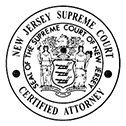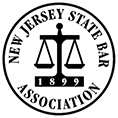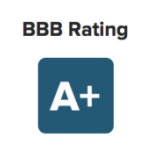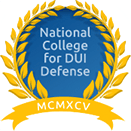Union County Pretrial Intervention Attorney
The attorneys at the Law Offices of Jonathan F. Marshall have extensive experience helping clients obtain admission into Pretrial Intervention (“PTI”) in Union County. The PTI program allows a defendant to forego prosecution for a third degree or fourth degree crime on the condition that they complete a period of supervision which is typically one year. If you would like to discuss your eligibility for Pretrial Intervention with an attorney is highly knowledgeable in this area of law, contact our Union NJ Criminal Office at 908-272-1700. A lawyer on our defense team, including one of our former prosecutors, is available 24/7 for free consultation if you have been charged with an indictable offense in Elizabeth, Cranford, Berkeley Heights, Westfield, Union or another area municipality. We are ready to put our 100 years of combined defense experience into action on your behalf.
When Do I Apply For Pretrial Intervention?
Within a short period of an arrest on an indictable charge in Union County, the case is listed for screening at Central Intake of the Union Vicinage Criminal Division, 2 Broad Street, Elizabeth, New Jersey. This office is located on the 1st Floor of the New Annex Building. Cathy Morales is the Team Leader and can be reached at 908-659-5407. At this proceeding, applicants are referred to the 2nd Floor where PTI applications are taken and, in many cases, probation interviews are completed. The Union County Pretrial Intervention Program can be reached at (908) 659-4675. Applications and interviews are also taken on the 6th Floor of the Union County Courthouse, the same location as the Union County Drug Court Program. An application for PTI must be filed within forty-five (45) days of arrest.
Who Is Eligible For PTI?
The indictable crime version of Pretrial Intervention is set forth at N.J.S.A. 2C:43-12 of the NJ Criminal Code. The guidelines for admission generally require the following:
- Residency in New Jersey;
- A charge that is a third degree or fourth degree crime;
- No prior indictable criminal record;
- No prior participation in a diversion program, including a prior PTI or Conditional Discharge.
While these criteria may appear quite basic, things can get very tricky, especially where an offense involves something like drug distribution, someone with a prior history of disorderly persons charges, or has participated in an out-of-state or juvenile diversion program. Eligibility alone does not suffice in terms of admission into Pretrial Intervention. The prosecutor must submit a recommendation that the applicant be admitted into the program, something that is often objected to where the defendant has shown a pattern of anti-social behavior in the past (e.g. arrests) or involvement in a for profit enterprise (e.g. selling drugs). This is why it is so important to retain an attorney who knows the Pretrial Intervention process at the Union County Criminal Division, including the what needs to be done at Central Intake (908-659-5407) to provide an individual with the best opportunity for admission into the program. It also helps if the lawyer has a prior history of working with the prosecutors office, something we have been doing for decades, so that the chances of an objection are minimized.
What Will The Prosecutor Consider In Determining Whether To Recommend or Object To Admission Into Pretrial Intervention?
As previously stated, an eligible applicant for PTI must receive a favorable recommendation by the county prosecutor before they may be admitted into the program. N.J.S.A. 2C:43-12 sets forth a number of factors to be considered by prosecutors in determining whether or not to recommend an individual for PTI, including:
- The nature of the offense;
- The facts of the case;
- The motivation and age of the defendant;
- The desire of the complainant or victim to forego prosecution;
- The existence of personal problems and character traits which may be related to the applicant’s crime and for which services are unavailable within the criminal justice system, or which may be provided more effectively through supervisory treatment and the probability that the causes of criminal behavior can be controlled by proper treatment;
- The likelihood that the applicant’s crime is related to a condition or situation that would be conducive to change through his participation in supervisory treatment;
- The needs and interests of the victim and society;
- The extent to which the applicant’s crime constitutes part of a continuing pattern of anti-social behavior;
- The applicant’s record of criminal and penal violations and the extent to which he may present a substantial danger to others;
- Whether or not the crime is of an assaultive or violent nature, whether in the criminal act itself or in the possible injurious consequences of such behavior;
- Consideration of whether or not prosecution would exacerbate the social problem that led to the applicant’s criminal act;
- The history of the use of physical violence toward others;
- Any involvement of the applicant with organized crime;
- Whether or not the crime is of such a nature that the value of supervisory treatment would be outweighed by the public need for prosecution;
- Whether or not the applicant’s involvement with other people in the crime charged or in other crime is such that the interest of the State would be best served by processing his case through traditional criminal justice system procedures;
- Whether or not the applicant’s participation in pretrial intervention will adversely affect the prosecution of codefendants; and
- Whether or not the harm done to society by abandoning criminal prosecution would outweigh the benefits to society from channeling an offender into a supervisory treatment program.
If probation or the prosecutor decide to object to the application, they are required to set forth their reasons, in detail, for the denial. The must state those facts and considerations that led them to deny and/or object to the admission into PTI. An individual has the right to appeal this denial although the standard for overcoming the decision is set high. The best way to avoid this situation is to make sure sound representation from an experienced attorney is secured early in the application process.
Consequences of Violating PTI
If you were admitted into Pretrial Intervention but violated one or more conditions of your probation, you will likely be subjected to a termination. The first step in this process is to serve you with a notice that probation intends to apply to the court for termination of your PTI. The process is very similar to the one for a violation of probation. At the related hearing date, you will have your opportunity to contest the termination. If you are successful, PTI will be continued. If you are terminated, however, your participation in the program is over and the original criminal charge is resurrected. The termination process is certainly something that an attorney can help you with as, in our experienced, a termination can be avoided in many instances.
Elizabeth NJ Pretrial Intervention Lawyers
The lawyers on our staff are ready to help you in the process of securing admission into PTI. We know what needs to be presented, to whom, and exactly where the information has to be delivered to provide you with the optimum chance of achieving Pretrial Intervention. Call us whether you were arrested in Hillside, Roselle Park, Springfield, Kenilworth, Linden or any other location in Union County. An attorney with the experience and skill required to successfully obtain PTI is available immediately at 908-272-1700. Contact us for a free consultation anytime 24/7.












